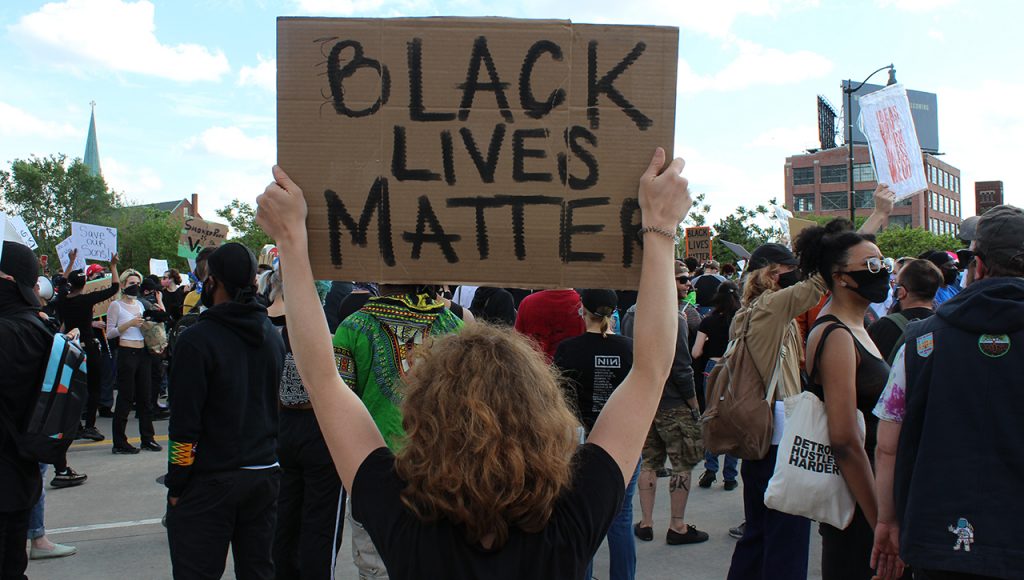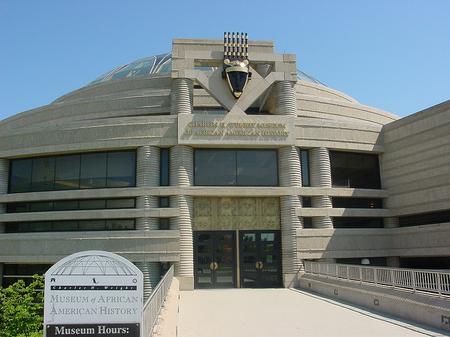Museums Preserve History, But During “Black Lives Matter” Protests Can Help Healing Today
Charles H. Wright Museum President and CEO, Neil A. Barclay discusses the role of cultural institutions in a time of socio-political unrest and how the museum plans to move forward amid the coronavirus.

Amid a global health pandemic, protests are taking place in Detroit and across the globe to combat racial injustice and police brutality targeted at the African American community.
“We’ve seen plans of diversity and inclusion before, but we haven’t seen a lot of change and that’s what this moment certainly brings to mind for me – how little has changed.” — Neil A. Barclay, Charles H. Wright Museum of African American History
“Black Lives Matter” chants and signs bearing the names of George Floyd, Breonna Taylor and the lengthy list of African Americans who have lost their lives to police brutality and discrimination are bringing a much broader awareness to the history of systemic racism.
Museums and art galleries are the places we preserve and analyze events that shaped and shifted society. But though we look to history to inform us about the present and future, today’s civil uprising asks these institutions to consider what can be done now as history is being made.
Listen: How the Charles H. Wright Museum is playing a role in this time of socio-political unrest.
“What’s become clear to me is the need to move beyond protest to where people can understand not just the emotion of the moment and what is being said, but where that comes from,” says Neil A. Barclay, President and CEO of the Charles H. Wright Museum of African American History. “I think we have a critical role to play [and] I’ll be working with my staff to put some more tools and information about how do we move beyond this moment. We’ve seen plans of diversity and inclusion before, but we haven’t seen a lot of change and that’s what this moment certainly brings to mind for me – how little has changed.”
“This moment allows us opportunity to be even more helpful by [providing resources] that could really help people to heal and offer a deeper understanding of where some of these issues come from.”
On behalf of the museum, Barclay released a statement Friday afternoon stating their solidarity with peaceful protestors exercising their fifth amendments rights.
“As this nation makes another attempt at putting in place progressive actions, it is my hope that the commitment is sincere and sustained,” the statement reads. “The Charles H. Wright museum stands as a beacon of hope for those who have passed as well as those who will carry the torch into the future.”
While plans are being devised to articulate the root and weight of what’s happening socially, culturally and politically, the Wright Museum is also working through the after effects of a worldwide shutdown due to COVID-19. Since the pandemic, the institution continues to cultivate community and tell stories of African American culture with their digital programming series, ‘Wright Now’ – a selection of multimedia content designed to entertain, educate and inspire.
“This moment allows us not to just shift online, but now it seems like there’s opportunity for us to be even more helpful in this moment by [providing resources] that could really help people to heal and offer a deeper understanding of where some of these issues come from,” Barclay says. “For the Wright, at least it’s not a question of going away or closing our doors. It’s really a question of focusing the resources that we have to be as impactful as we can in the present moment.”
Trusted, accurate, up-to-date
WDET is here to keep you informed on essential information, news and resources related to COVID-19.
This is a stressful, insecure time for many. So it’s more important than ever for you, our listeners and readers, who are able to donate to keep supporting WDET’s mission. Please make a gift today.

